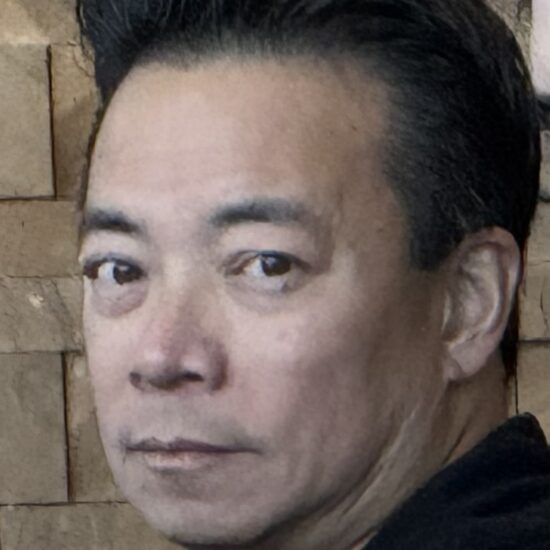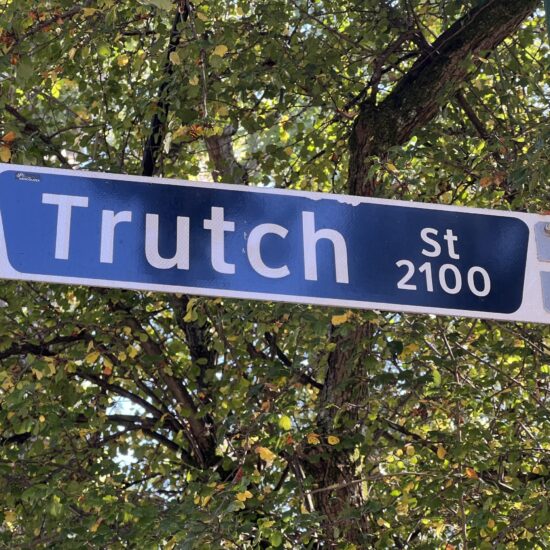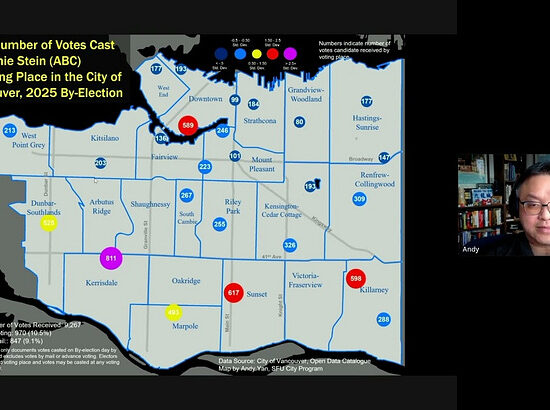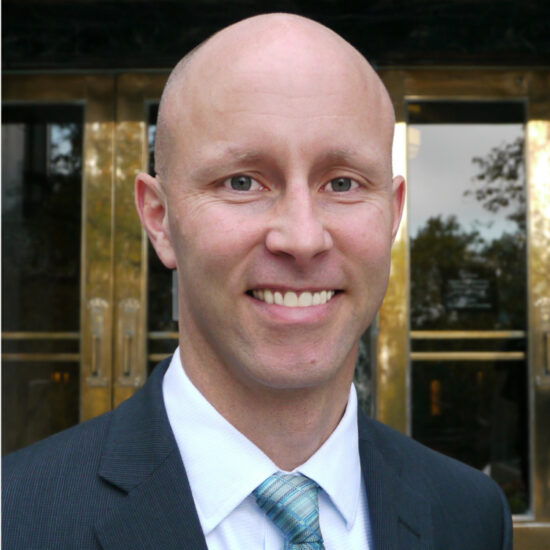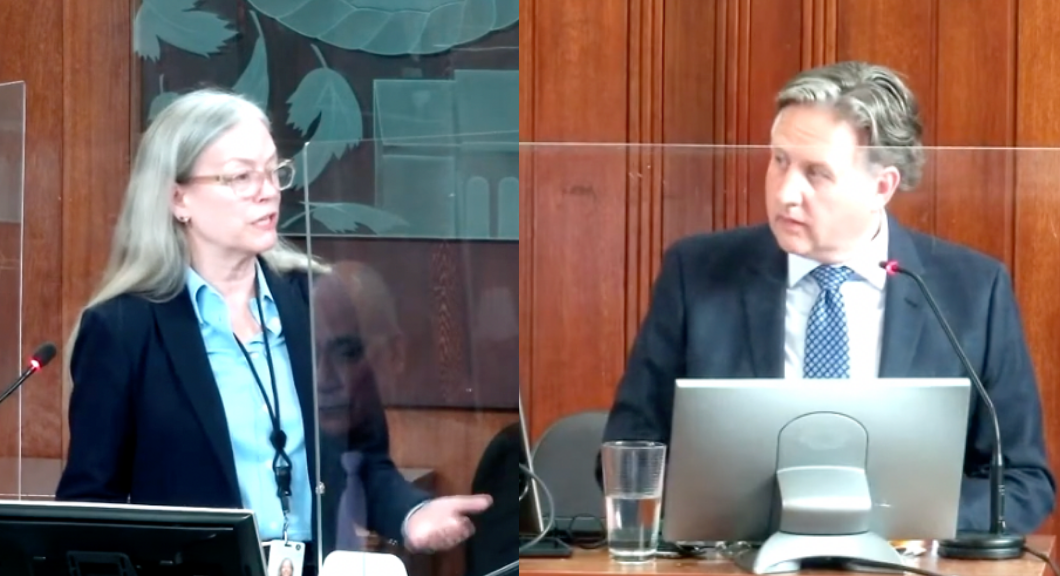
Bob Mackin
Vancouver city hall’s integrity commissioner has found Mayor Kennedy Stewart broke the code of conduct when he published a series of misleading Tweets in March against a proposed plebiscite on the Vancouver 2030 Winter Olympics bid.
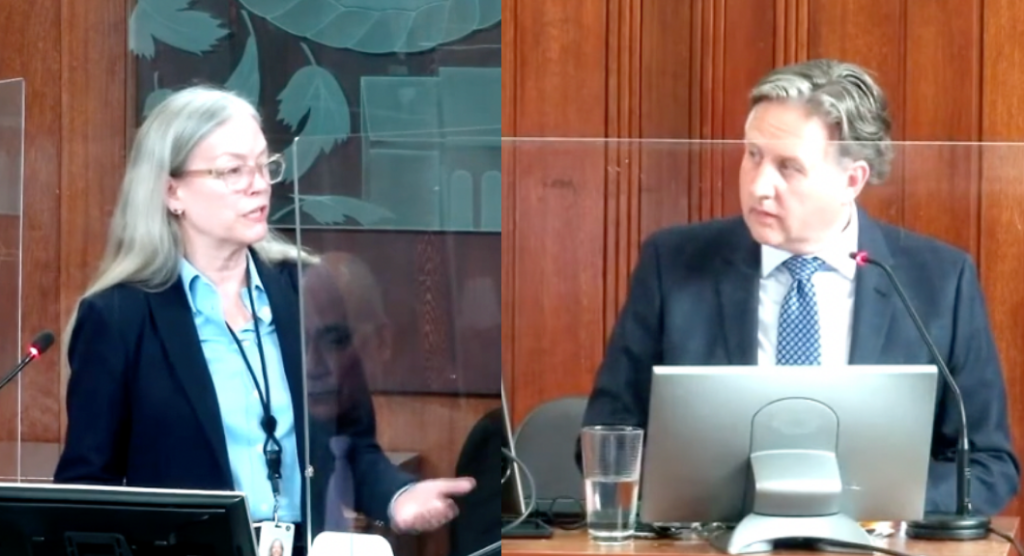
Coun. Collen Hardwick (left) and Mayor Kennedy Stewart at the April 12 city council meeting (City of Vancouver)
Stewart alleged that Coun. Colleen Hardwick’s motion to add a yes or no question to the Oct. 15 civic election ballot would violate the December 2021-announced bid exploration memorandum of understanding with the Resort Municipality of Whistler and the Four Host First Nations.
“I will not second this motion. I urge other councillors to consider what supporting @CllrHardwick’s decision to essentially tear up our MOU says about their own commitments to reconciliation,” Stewart Tweeted on March 24.
Hardwick withdrew the motion from the March 29 council agenda due to lack of support. When she tabled it during the April 12 meeting, no one else on council seconded the motion.
Integrity commissioner Lisa Southern investigated Hardwick’s March 25 complaint and ruled Stewart was wrong.
“We recommend the public record should be corrected to reflect that the motion was not a violation of the MOU,” Southern concluded in the July 5 report, which was published July 8.
Will that happen? Neil Monckton, one of Stewart’s two chiefs of staff, said by email: “As far as the Mayor is concerned, Coun. Hardwick violated the spirit of the MOU.”
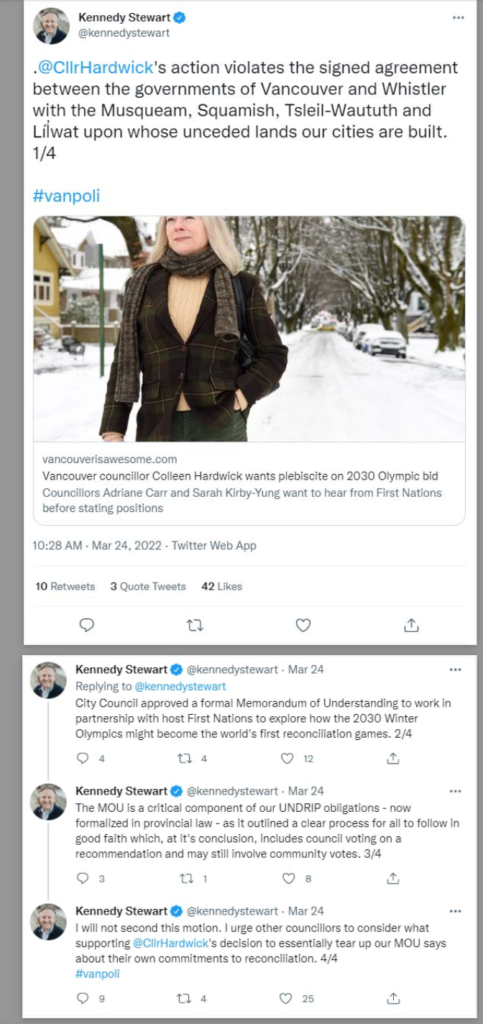
Mayor Kennedy Stewart’s Tweets that violated civic policy (Twitter)
Later, Stewart’s spokesman Alvin Singh, sent a prepared statement credited to the Mayor that read: “I thank the Integrity Commissioner for her work, and agree with her findings that a more accurate use of words would have been to say Councillor Hardwick’s motion violated the spirit of the MOU, which it did.”
Hardwick, the TEAM for a Livable Vancouver mayoral candidate against Stewart, said Stewart’s Tweet had serious consequences.
“His Tweet, his actions derailed or sidelined any opportunity for Vancouver residents to have a say on the Olympic bid,” Hardwick said in an interview. “It didn’t get seconded, it didn’t get to the floor, the people of Vancouver do not have a say, as they have in the past, as a result of his Tweets.”
Southern reviewed the December-released memorandum of understanding “with due consideration of the principles of contractual interpretation.” Stewart’s error, she wrote, was in characterizing the motion as a violation of the MOU, which it was not.
The MOU clearly states it is not legally binding on any of the parties, which also include the Musqueam, Squamish, Tsleil-Waututh and Lil’wat nations. Southern, however, stopped short in finding Stewart misused the influence of his office.
“As we have noted, the Tweets were not accurate in stating that there was a violation of the MOU. However, as supported by a third-party witness, we find that there were concerns by the Host Nations Exploratory Assembly about the motion, and that Mayor Stewart ‘has every right to form views, to hold views, to express views and, while in office, to give effect to those views’.”
Privately, the Canadian Olympic Committee discouraged all six parties to the MOU against holding a referendum this year, fearing that it would ruin the COC’s chance to open negotiations by year-end under the IOC’s new “targeted dialogue” strategy to award the Games without costly bidding wars.
Salt Lake City, the 2002 host, and Sapporo, the 1972 host, are also exploring bids. The IOC plans to pick the 2030 location in May 2023.

Vancouver integrity commissioner Lisa Southern (SBP)
A COC report released July 8 estimated another Winter Olympics in B.C. in 2030 would cost as much as $4 billion, including $1.2 billion in taxpayer grants. The report conceded that there were many unknown or hidden costs and risks. City council will decide later this month whether to support a formal bid. The B.C. NDP government wants the COC to provide details on governance, costs and risks by Aug. 15 before it decides whether to support the bid.
The all-in cost to build and operate the Vancouver 2010 Games was as much as $8 billion, but the B.C. Auditor General never conducted a final report. The organizing committee, VANOC, was not covered by the freedom of information law and its records were transferred to the Vancouver Archives after the Games with restrictions not to open the board minutes and financial ledgers before fall 2025.
Support theBreaker.news for as low as $2 a month on Patreon. Find out how. Click here.







